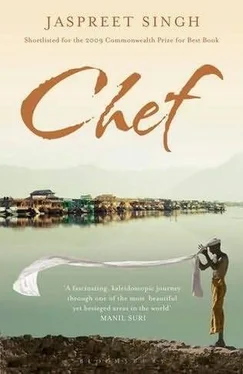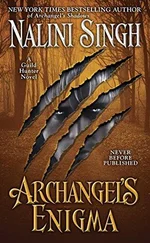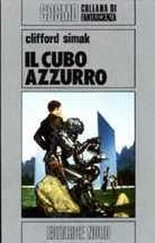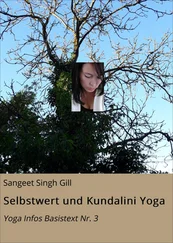‘Salaam.’
‘Salaam,’ I said.
She kept studying the ball.
‘With balls like these,’ I explained, ‘the sahibs play golf on the lawns.’
Her fingers tried to squeeze the ball gently the way people squeeze fruits before buying.
‘The dimples are there for a reason,’ I said.
‘I know,’ she said.
‘You know?’
‘They make the ball go faster.’
‘Who are you?’ I asked.
She smiled but stopped short of responding to me. Outside the trees looked dark and wet and naked.
‘Listen,’ I said. ‘You are a smart woman. But there are things you do not know. And that is why you waste your tears. I have come to reveal something about myself to you. If you do not know it already, then you must get to know it,’ I said. ‘In one single breath I would like to tell you. Here. Look at my face.’
She fixed her gaze on my boots, not my face.
‘Look at my face,’ I said.
It seemed natural to do what I did next. I removed my turban. I revealed the knot of hair on my head. She raised her eyes and surveyed me curiously.
‘I have long hair.’
I don’t recall if she dropped the ball or it fell on its own from her hand. The ball bounced several times on the floor before rolling and then coming to a stop, becoming absolutely still.
My hair tumbled to my knees.
‘That is why you found the strand in the dal,’ I explained. ‘You wept for one big nothing.’
‘So they inform you of everything about me.’
‘Because I would like to know you,’ I said.
‘Liar.’
‘No.’
‘What do you want to know about me?’
‘Everything.’
She eyed my long hair with enormous curiosity. It was the first time she looked right through me.
‘There are women who envy me,’ I said, ‘because I have hair longer than theirs.’
She continued gazing at me with the same curiosity. She looked right through me, and slowly her hands unknotted the scarf on her head. Slowly she let it go.
‘Hair,’ she said.
My gaze followed the movement of the scarf as it fell on the floor.
Then I heard her forced, convulsive laughter. I raised my eyes and observed: they had shaved off her hair. She broke out laughing before she wept. Like a child. Why did they shave off her hair? I asked myself. Why did we shave her head?
My eyes, too, welled up. Me, wearing very long hair, and this woman mourning the loss of her hair. Her scarf on the floor, and my turban on the table. I felt as if the two things, the scarf and the turban, were talking to each other.
Before I walked back to the kitchen I retrieved the tape recorder from my kit and left it by her bed.
‘I am leaving this music machine for you,’ I said. ‘The top is broken, so be careful. Look at my fingers. Here. This is the button you push to play. Push the last button to eject. Like this.’
Her gaze remained fixed on the broken top.
I pressed the button.
She listened to the music. A bit startled at first, the expression on her face changed many times until she smiled. I noticed again the small insects climbing up the whitewashed wall by her bed. The insects were vibrating too. I wanted to ask her many questions, and I had imagined she would request in that Muslim Kashmiri inflection of hers ‘Play it again! Play it again!’, but listening to those sounds she fell asleep.
mein bowznaav bayyi akki latté
akki latté bayyi
bowznaav
mein
winekya…
Sleeping, her hand lay extended. It appeared as if her hand was drawn, there was the sense of a painting. Her hand was woven into the foreign music. When the tape stopped her breathing became audible. There was a certain contradiction between the happiness on her sleeping face and the happiness of her dreams and her unhappy waking hours. What was she dreaming of? Was it wind or water or snow?
I returned to the kitchen with her untouched plate. She didn’t eat that day. If by shaving her hair off we meant to humiliate her, we had succeeded.
In November General Sahib flew on a helicopter with the Defense Minister to inspect the two battalions on Siachen Glacier. He took me along. Kip, he said, Minister Sahib and I will inspect the troops and you inspect the kitchens on the glacier.
Yessir.
In the helicopter it was cramped. The pilot made me sit on the seat right behind Sahib. The Minister and the General talked about matters connected to the security of our country, using code words like Peak 18 or NJ9842. From one white mountain to the next we flew like an eagle and I felt an intense pressure in my balls. My vertigo was growing more and more intense. Sahib, I almost cried out to him. Sahib, I can’t take it. He didn’t hear. I focused my gaze on his polished shoes and socks, and perhaps it was his black socks which comforted me. I shut my eyes and started thinking about the kitchen trainee. Two days ago the man had come to the kitchen and on his first afternoon he had used Sahib’s charcoal black sock to strain tea. I had scolded him on the spot. Major, I did nothing wrong, he had defended himself. Major, this is how we strain tea in our village. Bewakuf!
‘Why are you laughing, Kirpal?’ demanded the General in the helicopter. In my nose was trapped the smell of dirty laundry tea.
‘Sahib, it is just that I cannot be myself in the presence of such high mountains, such everlasting snow.’
The helicopter moved up in spirals and my lungs felt the lack of air. Suddenly we fell a few hundred feet. The machine dropped altitude without warning.
‘Minister, sir, the chap lost his father during the recon operation of NJ9842,’ said the General.
‘My sympathies with you, my boy,’ said the Minister.
The helicopter landed on the glacier helipad. Siachen is the second coldest place on earth. Two senior officers whisked the General and the Minister to a special tent.
Kishen appeared out of the thick fog and cold to receive me. He had one star less and I had one star more on my epaulettes, but the whole operation was a farce. He was my senior and I his junior, but our ranks held a different meaning. Our ranks said that I was his senior and he my junior. Kishen clicked his heels and saluted me and said ‘Welcome’ and to that welcome added the word ‘sir’. I extended my hand nervously. He hesitated to shake it at first, but changed his mind and crushed my hand like cloves of garlic.
He took me inside the white arctic tent. We sat down. Wind was howling outside, flapping the canvas. The kerosene bukhari was burning. His face was visible in the flames of the bukhari. There were dark rings beneath his eyes. He suddenly appeared older than his age.
‘So you have come,’ he said.
‘Sir.’
‘Don’t call me, sir, you little…’
‘Can we begin the inspection?’
‘You little Sikh, you think you have come here to inspect the rat’s alley? Do we have a cockroach problem in the kitchen? Do we know how to make Japani food? What are you going to do? How are you going to start?’
‘General Sahib asked me to…’
‘You toady of the General.’
‘Can we begin?’
‘What begin?’
‘The General would like to know the problems in the kitchen.’
‘What problems? We got no problems.’
His mind was elsewhere. Just then a brown dog entered the tent. It shook the snow off and came to sniff me. For no reason it jumped and licked my parka. I patted its head and suggested a walk, and to my surprise Chef stood up. We muffled ourselves and stepped out, and I still recall the sound our rubber boots made on brittle ice, and the dog’s panting. Wind struck our cheeks and he kept moving his arms up and down in the air, under the sky, and we were so high up we had essentially become the sky, and he moved his gloved hands up and down in air, and said this is how in Chef Muller’s country they conducted music. I am conducting music, he said.
Читать дальше
Конец ознакомительного отрывка
Купить книгу












